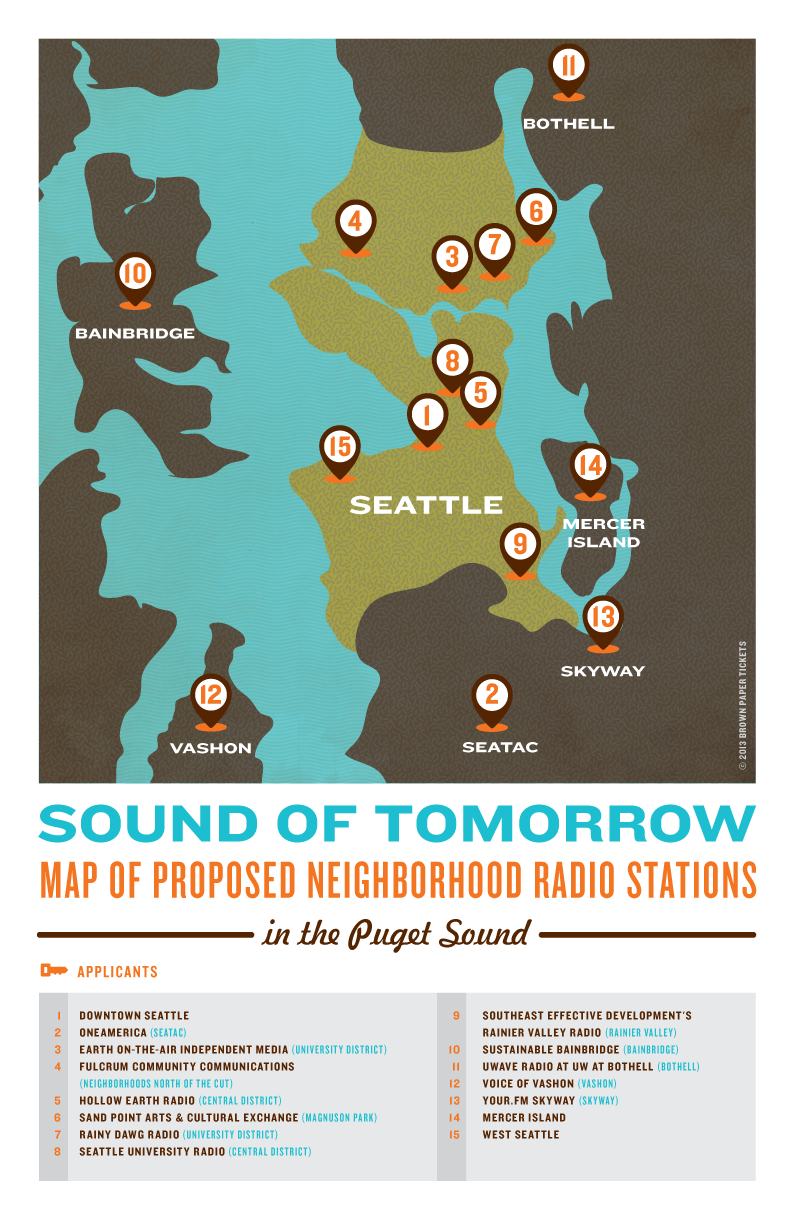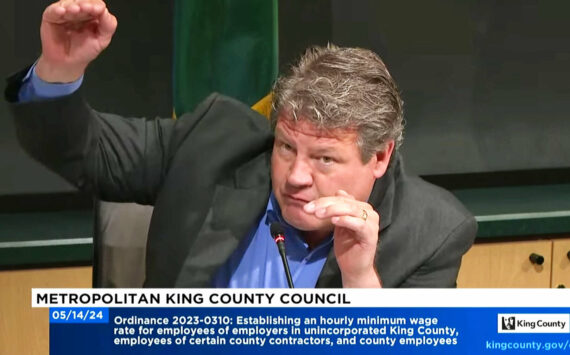While most were shaking their fists at Senator Ted Cruz and Co. for shutting down the government, Sabrina Roach, doer/public media over at Brown Paper Tickets was secretly kind of excited.
That’s because the shutdown delayed the original application window for the FCC’s Low Power FM broadcast deadlines, a program that opens up small frequencies on the radio dial to public, independent media outlets. Roach has been leading the charge in the LPFM effort here in Seattle, advocating for and supporting the 15 or so local organizations currently working on their applications. Before the shutdown, the window for applications loomed, stretching from Oct 15-29. Now, that date is up in the air.
“The Commission is suspending all FCC filing deadlines that occurred during the shutdown or that will occur on or before October 21, 2013 until further notice. The Commission will soon issue further guidance on revised filing deadlines,” FCC’s website announced last Thursday.
Roach is far from bummed.
“I am not frustrated about this, I am excited about the delay,” Roach said. “I’ve been working very closely with these groups, and I want them to have more time to fill out their applications, they are rather lengthy. I think everyone could use the time to continue to figure things out.”
Any guess as to when the application window will open up again is still conjecture at this point, but best guesses point to sometime early next year.
“I’ve been in communication with national advocacy groups who have been asking the FCC when that happens, but we’ll know soon when it reopens,” Roach says. But until then, Roach still has plenty of work to do.
More LPFM applicants have recently jumped on the bandwagon to consider starting up their own broadcasts, including Chicano/Latino Civil Rights group El Centro De La Raza, and Pike Place Market, joining groups like Hollow Earth Radio, Sustainable Bainbridge, and radio stations at University of Washington and Seattle University. These groups are all in various stages of completing FCC Form 318 to be considered for an LPFM broadscast, a long process that requires the assistance of an engineer to find viable frequencies that won’t bleed into any major market station frequencies. Once that form is completed, the FCC takes 6 months to a year to determine who will be awarded construction permits. Those who are awarded permits then have 18 months to contruct their studio and transmitter. After that, the groups then have to apply for a license to get on the air.
All in all, this means Seattle’s potential new radio landscape won’t appear until 2016 or 2017 at the earliest. In the meantime, Roach is excited about all the other forrays into media that will be born out of this long process.
“I’m very clear with these groups that not all of them will get frequencies,” Roach says. “But what all of them get is an institutional commitment within their organization to make media that tells their own stories. When they create that will within their groups, they’ll find ways to get their stuff out there in any way they can no matter what happens, whether it’s LPFM, the internet or some other outlet.”








